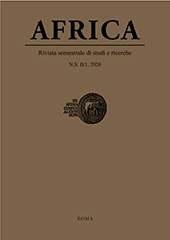On “good governance”: towards reconciling state and vernacular views in Southwest Ethiopia
 ‘Good governance’ has been defined as a necessary condition for (economic) ‘growth’ and ‘development’ not only in in developing world but also in the wealthier, developed nations. This paper by Prof. Jon Abbink seeks to sociologically explore the ‘articulation’ of the ideology of good governance of the post-1991 Ethiopian federal state with versions of legitimate authority, just rule, accountability, economic fairness, etc. with reference to some local ethnic societies in Southern Ethiopia. Similarities and differences will be discussed so as to show that the concept of ‘good governance’ is multi-dimensional and ambivalent, evoking local notions (and expectations) of a just order and the rule of fairness among citizens as well. In the context of Ethiopia, its constant reiteration as a policy aim may thus also have contributed to citizens’ renewed claim-making as well as their rediscovering their own (cultural) notions of just governance.
‘Good governance’ has been defined as a necessary condition for (economic) ‘growth’ and ‘development’ not only in in developing world but also in the wealthier, developed nations. This paper by Prof. Jon Abbink seeks to sociologically explore the ‘articulation’ of the ideology of good governance of the post-1991 Ethiopian federal state with versions of legitimate authority, just rule, accountability, economic fairness, etc. with reference to some local ethnic societies in Southern Ethiopia. Similarities and differences will be discussed so as to show that the concept of ‘good governance’ is multi-dimensional and ambivalent, evoking local notions (and expectations) of a just order and the rule of fairness among citizens as well. In the context of Ethiopia, its constant reiteration as a policy aim may thus also have contributed to citizens’ renewed claim-making as well as their rediscovering their own (cultural) notions of just governance.
Author(s) / editor(s)
About the author(s) / editor(s)
Jon Abbink is Professor of Politics and Governance in Africa at Leiden University.

